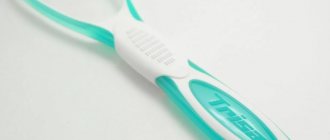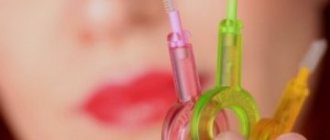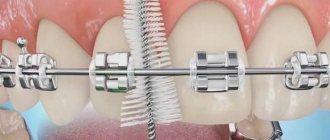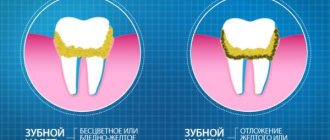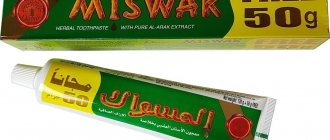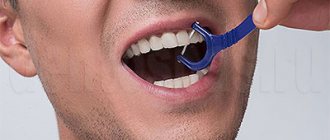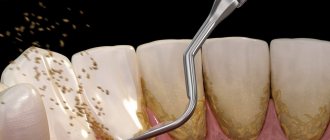Fortunately, there is an alternative to industrial products - a natural and safe miswak stick, which copes with oral hygiene and without the use of toxic toothpastes.
What is miswak (sivak) for brushing teeth?
Miswak, or siwak, is a brush for cleaning teeth, which is a piece of a branch or tree root , split at the end like a brush. Traditionally, miswak is made from arak (mustard tree), but olive, orange, neem, and Pila (Salvadora Persian) wood are also used.
By the way! Sivak has been known in the East since pre-Muslim times, but does not lose its popularity even today. “Chewing sticks” are also in demand in the countries of Southeast Asia.
Where does miswak grow?
The tree from which miswak is made is called “Salvadora persica” (from Latin). In Arabic, the name of this useful shrub is “Arak”. Grows in subtropical and tropical climates. The “toothbrush tree” can be found in India, Pakistan, North Africa, and the Arabian Peninsula. This is a small shrub up to 5 m high. The bark is brown, with a pleasant smell. The leaves are edible, with a mustard flavor (which is why arak is also called mustard tree). The leaves are used in India as a green for vitamin salads.
Salvadora Persiana grows in desert and clay soils. Harsh growing conditions contribute to the accumulation of large amounts of biologically active substances in the plant. This is necessary so that the tree can survive in unfavorable conditions.
Stick composition
Miswak is a completely natural dental care product. These “magic wands” contain more than 25 natural ingredients that are beneficial for dental health :
- tannic acid;
- bicarbonate of soda;
- cellulose;
- essential oils;
- fragrant resins;
- alkaloids;
- mineral salts;
- fluorine;
- sulfur substances;
- silica;
- vitamin C;
- saponins;
- styrene;
- flavonoids;
- trimethylamine.
Important! Miswak is a 100% natural, natural teeth cleaner, it is simply a part of the plant.
Unlike conventional toothpaste, it does not contain any harmful substances such as sodium lauryl sulfate, parabens, propylene glycol, benzyl alcohol, dyes, fragrances, etc.
Miswak powder - features
As an alternative or in addition to the toothpick, you can purchase a charcoal-based toothpowder made from arrack wood. This natural remedy has a pronounced whitening and anti-inflammatory effect, reduces bleeding gums, and freshens breath. The composition includes additional ingredients that increase the healing properties of the powder (cloves, black cumin, cinnamon).
It is used in the same cases as sticks: for the prevention and treatment of caries and gum disease.
The powder is more convenient to use, as it does not require special preparation and storage. It is more suitable for children, as well as those who have difficulty chewing a stick for a long time.
I buy pure miswak powder without additives and make my own tooth powder according to my recipe. I take one part miswak, one part ground herbs and one part store-bought “Special” or “Mint” tooth powder. I mix everything, add essential oils and sift through a strainer. I store it in a jar with the lid closed.
Beneficial features
The rich natural composition of the stick determines its excellent properties for maintaining dental health and treating them.
- Thanks to silicon, miswak helps whiten teeth and remove stains on enamel.
- Sulfur and galvanic substances prevent bacteria from growing on the gums and between the teeth.
- Trimethylamine in a stick will relieve inflammation and soothe pain during teething.
- Fluoride in the stick protects the teeth of adults and children from caries.
- Tannic acids and tannin relieve bleeding and sensitivity of the gums, heal wounds, have an astringent effect, protect against inflammation, protect against stomatitis and gingivitis.
- Bicarbonate of soda serves to effectively clean teeth, preserving their natural whiteness and shine, and gives freshness.
- Essential oils act as an antiseptic and pain reliever, prevent the formation of tartar and the appearance of putrefactive processes.
- Flavonoids serve to neutralize free radicals and protect against the destruction of cells and intracellular structures.
According to research by American scientists, the substances contained in the wooden stick are similar in their action to the usual antibiotics and antiseptics - triclosan and chlorhexidine, but unlike them, they do not suppress the beneficial flora of the oral mucosa .
It has been clinically proven that the use of miswak can reduce the number of pathogenic bacteria by up to 75%, the growth of Staphylococcus aureus and candida is suppressed, and the effect lasts up to 2 days .
For your information! When using miswak, it affects biologically active points in the mouth located at the border of the gums and teeth. Their stimulation has a positive effect on vision, vocal cords, eliminates lethargy of the body, and increases vitality.
Why is the procedure needed?
Professional teeth cleaning is a preventive and aesthetic procedure. It solves 7 problems at once:
- prevents the development of caries and inflammatory gum diseases;
- makes teeth whiter;
- carried out as preparation for complex dental treatment (implantation, bite correction, prosthetics);
- adds self-confidence;
- reduces the risk of complications after complex dental treatment;
- removes dark marks caused by coffee, cigarettes and food dyes;
- solves the problem of bad breath if it is caused by tartar.
During home brushing, mineralized plaque remains on the teeth. It can only be removed using professional tools and methods. Therefore, dental cleaning is a necessary procedure for anyone who wants to maintain healthy teeth.
How often should I clean?
Hygienic cleaning must be carried out every morning and evening. Professionally, the procedure is carried out once every six months. This is enough to maintain the result. Additionally, cleaning may be necessary before undergoing complex dental treatment or if you regularly drink coffee or smoke cigarettes.
.
Flaws
Along with the extensive list of advantages of miswak, it also has several disadvantages :
- It is difficult to clean the outer teeth and the inner surface of the teeth with a small brush .
- Also, due to the small area of the bristles, brushing your teeth will take longer than usual. Cleaning will take 5-10 minutes , as opposed to the usual 2-3 minutes when using a traditional nylon brush and paste.
- After using miswak, you will not have the usual “minty breath” as when using paste.
Types and differences
Professional teeth cleaning can be done in a variety of ways. Each of them has both advantages and disadvantages. The patient’s wishes are taken into account when choosing a technique, but the final decision is made by the doctor, taking into account contraindications and the condition of the teeth.
Ultrasonic
The most effective way to remove solid deposits is ultrasonic cleaning. With its help, tartar is removed. A special device is used for this: it can be built into the dental unit or made as a separate unit. This is an ultrasonic scaler.
There is a working nozzle at the tip of the device. Its tip makes oscillatory movements at an ultrasonic frequency of 25-50 kHz. Additionally, water or an antiseptic solution is supplied to the nozzle. They enhance the cleansing effect due to cavitation - vibrations of water dipoles with the formation of bubbles. Excess fluid is removed using a saliva ejector.
Ultrasonic cleaning, when carried out correctly, does not damage the enamel. It allows you to remove not only tartar, but also bacteria due to the supply of an antiseptic solution and the bactericidal effect of cavitation. Supra- and subgingival deposits are also removed. The procedure is absolutely painless and comfortable.
Laser teeth cleaning
Teeth cleaning with a laser is quick. The beam is directed onto the surface of the teeth, causing the water in the plaque to evaporate. Residues are washed off with a water jet under pressure.
Teeth cleaning with a laser requires expensive equipment. It is significantly higher in price than the others.
Sandblasting
Teeth cleaning by sandblasting is carried out using an Air Flow device. This is a modern and effective way to remove old plaque. For cleaning you need a device with attachments, a mixture of fine abrasive and a fixing gel. Cleansing powders are produced with pleasant flavors, which makes the procedure more comfortable.
Hygiene with Air Flow is not suitable for removing tartar. But the device copes well with old soft plaque. It does not harm enamel, but should be used with caution in people with sensitive gums.
How to use it correctly?
For cleaning, sticks 12-17 cm long and 0.8 - 1.5 cm thick , made from branches or roots of the arak tree or Salvadora Persian, are used. Dental sticks are made less frequently from other trees.
Freshly cut sticks are sold packaged in vacuum packaging, in which they remain fresh for a long time.
A good quality miswak should be flexible, not dry, and have a pungent, spicy woody odor reminiscent of horseradish or anise. The thinner the siwak, the softer its bristles will be .
Before use, remove the sticks from the packaging, wash them with warm water and clear one end of the bark. This can be done with a knife, teeth or just nails. The cleaned end must be split to form bristles . To do this, you need to chew the stick, or also use a knife. The resulting brush can be used to clean your teeth and tongue.
The inner surface of the teeth should be properly cleaned with the side of the brush, as if sweeping away plaque from the teeth. The movement is reminiscent of removing excess paint from a brush on the edge of a can.
Attention! Do not press hard on the stick so as not to damage the enamel and gums.
Miswak should be used in the morning, evening and every time after meals . After use, the stick should be rinsed with water. If the miswak's bristles become sparse, you need to trim the tip and make a new brush. Usually the stick lasts for 1 month of use .
How to choose a quality miswak
The sticks may have a salty taste if the plant grew in brackish soils. Such a miswak may even have a white coating, but at the same time it is of quite high quality. A sweet taste indicates the addition of synthetic ingredients to increase shelf life. It is better to buy siwak without additional preservatives. The natural substances of the plant are quite enough to protect against spoilage. Provided that the miswak is of high quality and packaged fresh. It is also not recommended to purchase siwak with additional flavors, for example, mint, since in this case synthetic flavors are used.
Thin sticks (up to 1 cm in diameter) are more tender, easier to chew, and more juicy. They are best used for painful gums that are prone to bleeding. Thick ones have hard fibers, so this brush has the best whitening effect. But its coarse fibers penetrate harder into hard-to-reach places, making it more difficult to clean the side surfaces of the back teeth.
A good siwak has a strong, pleasant aroma. The stick should not be too thick or too long. The average length is 15–20 cm. This miswak is best suited for comfortable use.
FAQ
1. Is it possible to give a stick to children and at what age ? A child can be given a stick if he has at least one tooth erupted. This will help him get used to the need for dental care; in addition, chewing a stick can relieve teething pain.
2. When is the best time to trim used fibers ? It is recommended to trim the used brush after 2-3 cleanings.
3. How long does it take to chew miswak ? The stick should be chewed until the fibers separate from each other and a soft brush is obtained. Usually requires 5-10 pressings with chewing teeth.
4. Is it possible to use sivak during pregnancy and breastfeeding ? Pregnancy and lactation are not a contraindication for the use of miswak. The stick contains no substances that can cause allergies in the child or affect the contractility of the uterus. There is an opinion that during lactation, mothers need to exclude from the diet foods that have a pungent and strong odor. Miswak, of course, has a specific smell, but it is not eaten and is unlikely to affect the taste of milk.
5. Will the product damage tooth enamel ? Miswak does not contain abrasives and is not capable of damaging enamel.
6. Should you just brush your teeth with the toothbrush or add toothpaste ? When using miswak, there is no need for toothpaste, since all the elements beneficial for dental health are already contained in the stick itself.
What is the Sunnah time to brush your teeth with miswak?
Brushing your teeth with a sivak is allowed at any time of the day, but there are time intervals when it is advisable to use a sivak.
During ablution (as noted above).
After returning home, it is recommended to apply miswak immediately after a Muslim crosses the threshold of his home. The wife of the Prophet (peace be upon him) - Aisha (may Allah be pleased with her) said: “When the Messenger of Allah (peace be upon him) entered a dwelling, the first thing he did was take up the siwak” (Muslim).
After sleep. In one hadith there is information that the prophet (peace be upon him), waking up for night prayer, brushed his teeth with miswak (Bukhari).
Before going to the mosque, as the Messenger of Allah (peace be upon him) did. It is known that before collective prayer, he used incense and freshened his breath with siwak.
Consumer Reviews
Below are some customer reviews. If you have something to say, leave your feedback in the comments below the article, it will be useful to our readers.
Succumbing to the advertising of an online store, I bought a stick of miswak “to try”, fortunately the price was low. I opened it, washed it with water, chewed it, everything according to the instructions. The hot water made the bristles soft and brushing my teeth was pleasant. I was surprised at the pleasant feeling of cleanliness on my teeth, there was no plaque, and this despite the fact that I just cleaned them with a branch, without any product! I liked the effect, I will continue to brush my teeth with this stick!
I bought a miswak on the advice of a friend. I liked that there was no pronounced taste or smell, there was a slight bitterness, like cigarette smoke. It cleans well, but it takes more time than using a regular brush. You can leave it for evening cleaning, or take it with you and use it throughout the day, and you don’t have to carry the paste with you.
Dry cleaning
For professional hygiene, a special gel containing acid and hydrogen is applied to the teeth. The composition is kept for several minutes. Under the influence of chemicals, tartar is destroyed. It is then easily cleaned off with water.
The technique is painless and effective, but plaque in the interdental spaces cannot be removed in this way. The composition also has an adverse effect on the gums, so it is better not to use it for people with closely located vessels.
Mechanical teeth cleaning
The simplest method of professional dental hygiene. It is carried out using dental instruments, highly active pastes and brushes. This takes longer than other cleaning methods. There is a risk of damage to the enamel. Therefore, the mechanical method is used quite rarely.
Fluoridation of teeth
After professional cleaning, teeth are often fluoridated. It performs 4 functions:
- strengthens enamel;
- reduces tooth sensitivity;
- slows down the growth of bacteria;
- reduces the negative impact of an acidic environment.
To do this, the surface of the teeth is coated with fluoride varnish. To do this, use a special brush or mouth guard with gel.
Useful video
From this video you will learn what a miswak is for and how to use it correctly:
To date, many studies have been conducted confirming the benefits of using miswak for the oral cavity. The active natural substances it contains protect teeth from diseases, the stick gently removes plaque and tartar from teeth, and is very convenient and pleasant to use .
In addition, after serving its life, the stick does not pollute the environment, as it is 100% natural. This is probably why miswak is so popular among people who care about their health, who prefer everything natural to synthetic and who care about the environment.
Dental floss
Nylon floss is used to clean the interdental spaces. It is pulled between the teeth, covering each one in turn so that it forms the letter “C”. Floss scrapes off plaque with more force than a waterpik. Because of this, debate continues about whether dental floss is useful: some doctors believe that it can injure soft tissues, and in cases where the gums have receded, partially exposing the root, using it can simply be painful.
When brushing, the dental floss should wrap around the tooth in a semicircle.
Most dentists agree that waterpik and dental floss are effective in different situations. The first is suitable for daily cleaning, and the second can be used when necessary and remove more durable plaque deposits.

